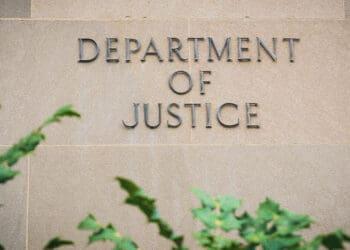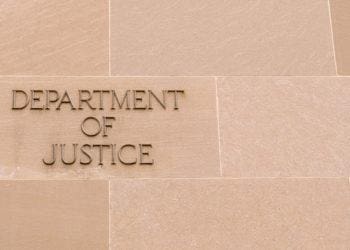Cozen O’Connor’s Nicole Sprinzen and Thomas Ingalls discuss how, under the new Antitrust Division policy, an effective compliance policy would not only prevent antitrust violations, but also remediate them when they do occur.
On July 11, 2019, the U.S. Department of Justice (DOJ) Antitrust Division announced new guidance concerning the effect of compliance programs in criminal antitrust cartel sentencing that significantly increases the importance of having a well-designed and robust compliance program. Now, a risk-based compliance program appropriately tailored to mitigate company employees entering into conspiratorial antitrust agreements can mitigate the Antitrust Division’s determination that a company engaged in a criminal antitrust violation.
Before this change, pursuant to the Antitrust Division’s Corporate Leniency Policy, only the first company “in the door” of the Antitrust Division to report illegal cartel activity could receive full credit against criminal prosecution. Other members of the cartel could be rewarded for cooperating but were required to plead guilty and pay substantial fines. Further, it was Antitrust Division practice to take the existence and effectiveness of compliance programs into account only as a factor in connection with the determination of any fine amount. Under the new guidance, the DOJ will consider the existence of a robust compliance program in connection with considering reduced criminal exposure and the availability of a deferred prosecution agreement for the company. The change brings Antitrust Division policy and practice more in line with that of the Criminal Division on these points.
Assistant Attorney General Makan Delrahim delivered remarks at the New York University School of Law Program on Corporate Compliance and Enforcement announcing the changes.1 The Antitrust Division is shifting from its “all-or-nothing philosophy” to a more nuanced approach to corporate conduct in which compliance programs are the “first line of defense.” As a result, the Antitrust Division has for the first time released written guidance for the evaluation of compliance programs.
Additionally, Delrahim announced that the Antitrust Division may now resolve investigations through deferred prosecution agreements when the “relevant [f]actors, including the adequacy and effectiveness of the corporation’s compliance program, weigh in favor of doing so.”2 The Antitrust Division considers deferred prosecution agreements “an important middle ground between declining prosecution and obtaining a conviction of the corporation,” but will continue to “disfavor non-prosecution agreements” to preserve the perceived effectiveness of the first-in Corporate Leniency Policy.3
In his remarks, he emphasized that robust compliance programs “do not guarantee” a deferred prosecution agreement, but that prosecutors will analyze whether the compliance program is “adequately designed for maximum effectiveness.”4 In this regard, prosecutors will consider:
- Whether the program addresses and prohibits criminal antitrust violations;
- Whether the program detected and facilitated prompt reporting of the violation; and
- Whether senior management was involved.5
According to the written guidance, the Antitrust Division will consider the following factors to determine if a compliance program is effective:
- The design and comprehensiveness of the program;
- The culture of compliance within the company;
- Responsibility for and resources dedicated to antitrust compliance;
- Antitrust risk assessment techniques;
- Compliance training and communication to employees;
- Monitoring and auditing techniques, including continued review, evaluation and revision of the antitrust compliance program;
- Reporting mechanisms;
- Compliance incentives and discipline; and
- Remediation methods.6
Notably, to be determined “effective,” a compliance program need not prevent a violation. Rather, it must include aspects sufficient to prohibit illegal antitrust activity and minimize the likelihood of a criminal antitrust agreement, taking into account the company’s business activities. The guidance is available here.
In addition to potentially receiving a deferred prosecution agreement, a company with an effective compliance program is eligible for a three-point reduction in the company’s culpability score under the U.S. Sentencing Guidelines. The Sentencing Guidelines have always provided for this reduction. Now, however, the existence of an effective compliance program may result in the Antitrust Division recommending fines below the guidelines range.
On the other hand, the failure to implement an adequate compliance program may result in the Antitrust Division recommending probation, periodic compliance reports or even an external compliance monitor as part of any corporate resolution of antitrust charges.
The shift in policy brings the Antitrust Division in line with the Criminal Division. In practice and under new Antitrust Division policy, an effective compliance policy is one that is designed not only to prevent antitrust violations, but also to remediate them when they do occur. As a result of the policy change concerning the consideration given to compliance policies, in combination with the new availability of deferred prosecution agreements, companies with robust and proactive compliance programs focused on the specific risks of the company’s business could receive a more favorable outcome than was previously available under Antitrust Division policy. Thus, the time for a company to ensure that its compliance program is optimized and targeted to the business’s specific risks is before a violation occurs — to maximize the preventative effect of the program, as well as the mitigation impact of the program in the event of an enforcement action.
1 Remarks of Makan Delrahim at NYU Sch. of Law Program on Corp. Compliance & Enforcement, Wind of Change: A New Model for Incentivizing Antitrust Compliance Programs (July 11, 2019).
2 Id.
3 Id.
4 Id.
5 Id.
6 US Dep’t of Justice, Antitrust Div., Evaluation of Corporate Compliance Programs in Criminal Antitrust Investigations (July 2019).














